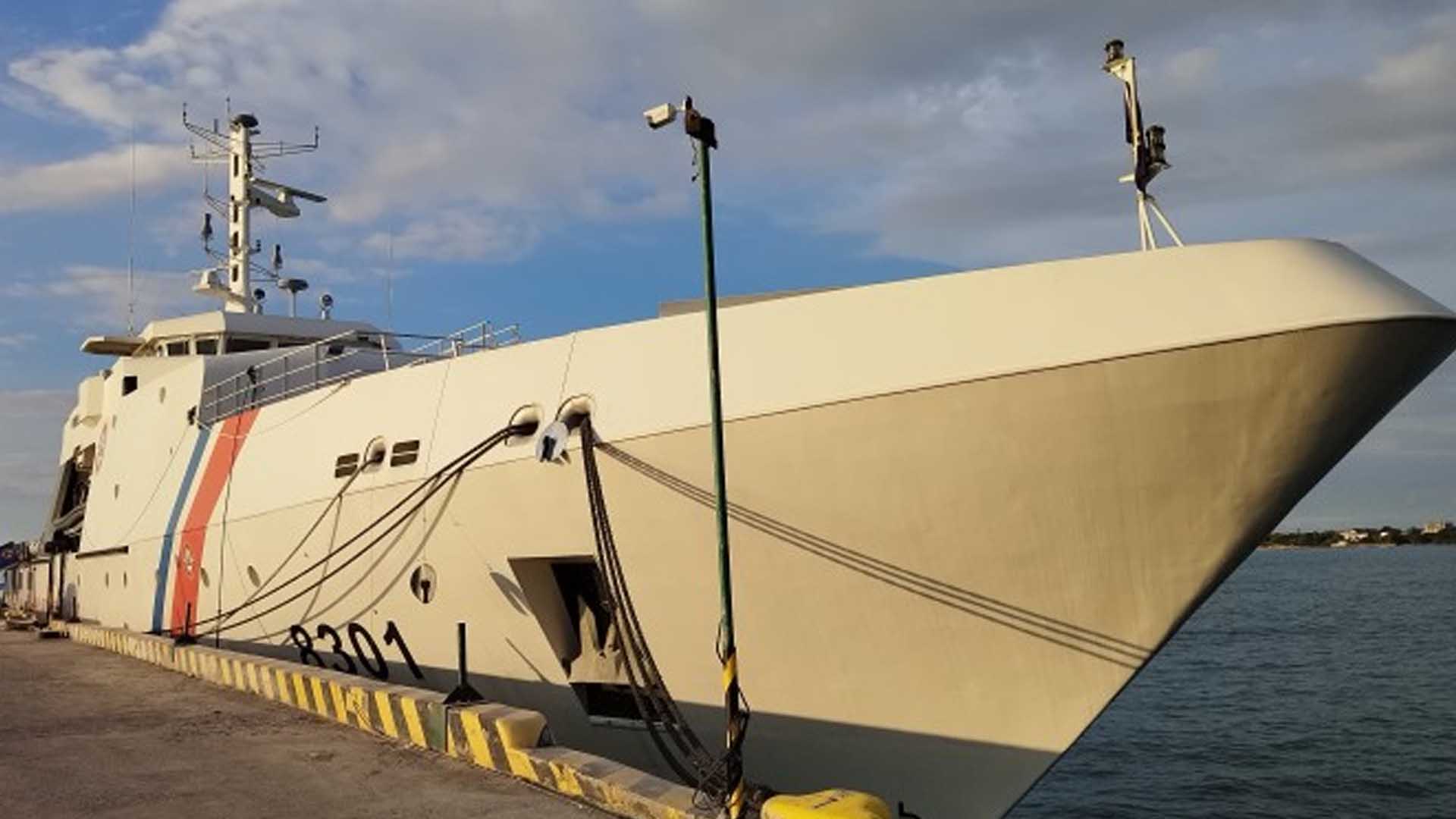Residents of the Ilocos Region have witnessed not only the grandeur of the Philippine Coast Guard’s (PCG) BRP Gabriela Silang when it docked on the waters of San Fernando City, La Union late last year but also learned about its significant role during disasters, the pandemic and amid the conflict in the West Philippine Sea.
Named after the brave yet compassionate heroine Gabriela Silang, the offshore vessel has had a fair share of contributions to the country during trying times.
In an interview on Tuesday, Ensign Julius Caesar Reburiano, vessel supply officer, said the BRP Gabriela Silang has since been used in over 20 relief operations across the country.
“The vessel was used to transport relief goods in a typhoon or disaster-hit areas all over the country,” he said.
Disaster operations
In December 2021, BRP Gabriela Silang was dispatched to bring relief goods to Typhoon Odette-hit regions along with offshore vessels of the PCG.
The ships were loaded with relief goods such as boxes of food packs, tents, sleeping kits, and bottles of alcohol when it headed to the provinces of Surigao del Norte and Surigao del Sur.
The vessel also assisted in the relief operations in the province of Catanduanes after the onslaught of Super Typhoon Rolly (Goni) in November 2020.
The offshore vessel has also been part of the national government’s “Hatid Tulong” program, assisting returning and stranded overseas Filipino workers (OFWs) and locally stranded individuals (LSIs) at the height of the coronavirus disease 2019 (Covid-19) pandemic.
It was commissioned as a transport ship or as a quarantine ship for seafarers arriving in the country at that time.
Amid the conflict in Libya, it served as support vessel in the evacuation of Filipinos from Tripoli.
The BRP Gabriela Silang at that time was tasked to proceed to the Libyan coast should the repatriates encounter problems along the way and be forced to turn back.
The vessel was then en route to Manila but was directed to stay in Malta to support the possible evacuation of Filipinos from Tripoli where conflict had been raging for almost a year.
It is also ready to repatriate OFWs in case hostilities would erupt in the Middle East.
According to PCG, the offshore vessel’s functions include maritime search and rescue operations and providing assistance to vessels, aircraft, and personnel in distress at sea as well as enforcing maritime safety regulations, and assisting in the mitigation and containment of oil spills and other maritime pollution incidents, among others.
It has also conducted a coast clean-up at the contested Kalayaan Island and patrolled all over the country.
“Offshore patrol vessel mainly helps our country to give security on our territories,” Reburiano said.
He noted that Gabriela Silang was specifically designed to patrol a much larger area than the previous ships of the PCG.
It is now patrolling the West Philippine Sea along with the newest vessel in the PCG fleet, the BRP Teresa Magbanua.
BRP Gabriela Silang left Saint-Nazaire, France for its maiden voyage on Dec. 30, 2019, and reached the country on Feb. 10, 2020.
It was commissioned for the PCG by the Department of Transportation and also the first offshore patrol vessel acquired by the Philippines.
State-of-the-art vessel
The 83.60-meter long vessel is capable of transporting approximately 500 people at one time and performs beyond its contractual specified speed of 20 knots. It has a range of 8,000 nautical miles at 15 knots and an endurance of up to five weeks of non-stop operations.
Reburiano said the offshore vessel uplifted their morale, being a modernized asset.
“It is modern and state of the art and its equipment and capabilities were upgraded,” he said.
The vessel has modern rescue equipment and even has its own medical clinic complete with equipment needed during rescue operations or medical emergencies of the crew. It can likewise serve as a jail for law violators or hostile individuals and even as a morgue during body retrieval operations.
President Ferdinand R. Marcos Jr. pledged to give his full support for the PCG’s expansion and modernization efforts during the celebration of the PCG’s 121st founding anniversary last year.
The PCG is the primary agency responsible for performing maritime search and rescue, maritime law enforcement, maritime safety, marine environmental protection, and maritime security.
It envisions itself as a “world-class” sea guardian by 2028 “to save lives, ensure safe maritime transport [and] cleaner seas, and secure maritime jurisdiction.”
The Department of Transportation earlier vowed to continue the Maritime Safety Enhancement Project which aims to modernize and reinforce the PCG’s capability to ensure the country’s maritime safety and security. (PNA)







